


Is There a Place for God in the Israeli Army?
Written By: Prof. Yedidia Z. Stern
In an article in the <em>Jewish Week</em>, IDI Vice President Yedidia Stern discusses the question of whether it is appropriate for commanders to use religious rhetoric in motivating their soldiers, and stresses the need for the Israeli army to represent all.

The (Legal) Battle against the Islamic State
Written By: Prof. Amichai Cohen, Adv. Tal Mimran, Prof. Yuval Shany
Three IDI experts on terrorism and democracy discuss the key points of the UN Security Council resolution that condemns the abuse of human rights by the Islamic State, and note two points that they believe are missing from the resolution.

When November 4th Meets the 12th of Heshvan
Written By: Yitzhak Ben David
Rabbi Yitzhak Ben David shares thoughts on the alignment of the Memorial Day for Yitzhak Rabin on the Gregorian and Hebrew calendars, which challenges us to find a renewed reconciliation between Israeli democracy and Jewish civilization.
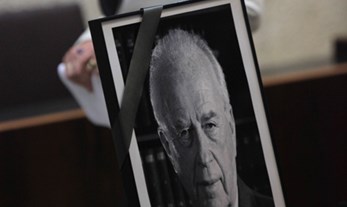
Joining Together to Remember Yitzhak Rabin
Written By: Benjamin (Benny) Lau
On the 19th anniversary of the Rabin assassination, Rabbi Dr. Benjamin (Benny) Lau, head of IDI's Human Rights and Judaism in Action project, looks at the youth of Israel and shares a vision of hope.

Israeli Democracy Day: Yitzhak Rabin's Legacy for the Future
Written By: Prof. Yedidia Z. Stern
On the 19th anniversary of the assassination of Yitzhak Rabin, Prof. Yedidia Stern asserts that if the annual memorial day for the late prime minister were to be observed as Israeli Democracy Day, Rabin's legacy for the future would be even greater.
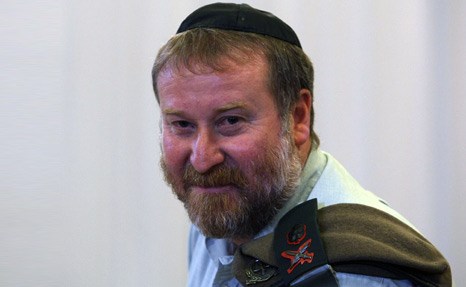
Adviser or Prosecutor? Israel's Attorney General Can't be Both
Written By: Prof. Yedidia Z. Stern
IDI Vice President Yedidia Stern asserts that there is a conflict of interest between the Attorney General’s two functions—as State Attorney and State Prosecutor—and the office must be split in two.
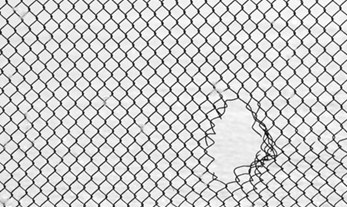
Overriding the Supreme Court: A Breach in the Wall of Democracy
Written By: Dr. Amir Fuchs
Dr. Amir Fuchs discusses the proposal to add an override clause to Israel's Basic Law: Human Dignity and Freedom that would enable the Knesset to bypass the High Court and deal a a severe blow to the main safeguard of human rights and minorities in Israel.

The IDF’s Fighting Ethos in the Wake of Operation Protective Edge
Written By: Yohanan Plesner
IDI President Yohanan Plesner stresses the need to ensure that the Israel Defense Forces remains at the heart of the Zionist consensus so as to enable it to continue to be the army of all citizens of Israel.

Transparency in Local Authority Budgets
Written By: Dr. Tehilla Shwartz Altshuler
Dr. Tehilla Shwartz Altshuler discusses the challenges to transparency in the budgets of Israel's local authorities, including the need to make budgets accessible, to enable searches within budgets, and to facilitate comparisons between the budgets of different authorities.
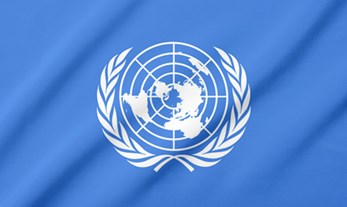
A Betrayal of International Law
Written By: Prof. Mordechai Kremnitzer
In a Jerusalem Post op-ed, Prof. Mordechai Kremnitzer argues that by breaching their responsibility to be impartial, the UN Human Rights Council and its commission for investigating alleged war crimes in Gaza are betraying international law, even if unintentionally.
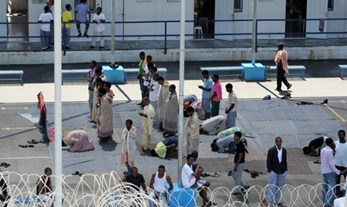
Second Strike and You Are (Finally) Out? The Quashing of the Prevention of Infiltration Law (Amendment No. 4)
Written By: Prof. Reuven (Ruvi) Ziegler
IDI Researcher Dr. Reuven (Ruvi) Ziegler presents a brief overview of the Israeli High Court of Justice's decision to strike down Amendment No. 4 of the Prevention of Infiltration Law, and explores several themes that may be of comparative constitutional interest.

The Admissions Committees Ruling: A Lack of Ripeness or Refusal to Decide?
Written By: Dr. Amir Fuchs
Dr. Amir Fuchs discusses the Israeli High Court of Justice's decision to uphold the "Admissions Committees Law," which allows small communities to reject applicants due to a lack of social suitability.

Shmita: Rest, Share, Release
Written By: Prof. Yedidia Z. Stern
An exploration of the existential, social, and economic dimensions of the Shmita year, that calls for bringing together social, moral, cultural, religious and national forces to implement the idea of Shmita in non-agricultural and national contexts in Israel.

ISIS: Is the Islamic State Really a State?
Written By: Prof. Yuval Shany, Prof. Amichai Cohen, Adv. Tal Mimran
What criteria must the caliphate of the Islamic State meet in order to be considered a State under international law? This article presents an analysis of this question by IDI experts on terrorism and democracy.

The IDF: Army of the People or Army of God?
Written By: Prof. Mordechai Kremnitzer
IDI Vice President Prof. Mordechai Kremnitzer addresses the question of the appropriateness of the letter that Givati Brigade commander Col.Ofer Winter sent to his subordinate officers as Israel prepared for the ground incursion in Gaza in the summer of 2014.
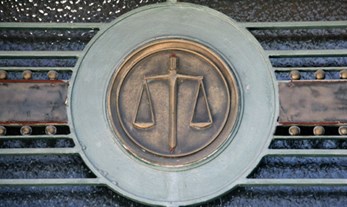
Mourning for Gazan Children Isn't Left-Wing
Written By: Prof. Mordechai Kremnitzer
IDI Vice President Prof. Mordechai Kremnitzer discusses the High Court of Justice's decision to uphold the Israel Broadcasting Authority's rejection of an infomercial in which the names of Gazan children who were killed in Operation Protective Edge would have been read aloud.
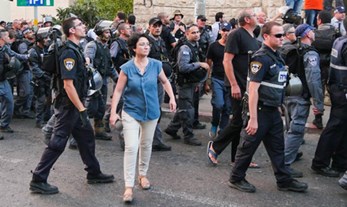
On the Punishment of MK Hanin Zoabi by the Knesset Ethics Committee
Written By: Dr. Assaf Shapira
IDI researcher Assaf Shapira provides background information on the decision of the Knesset Ethics Committee to suspend MK Hanin Zoabi for statements she made about the kidnapping and murder of three Jewish teenagers and about Operation Protective Edge.

On Intermarriage, Judaism, and Democracy in Israel
Written By: Benjamin (Benny) Lau
Rabbi Dr. Benjamin Lau shares thoughts on the tension between Judaism and democracy, in response to the public protests against the marriage of a Jewish woman who converted to Islam and an Israeli Arab.

Investigating Allegations of Violations of the Laws of War by the IDF during Operation Protective Edge: The Alternatives Available to Israel
Written By: Prof. Yuval Shany, Prof. Amichai Cohen
How should suspected violations of the international laws of war be investigated? As Operation Protective Edge winds down, Prof. Yuval Shany and Prof. Amichai Cohen discuss the options of an internal investigation by the IDF, an international investigation, and an Israeli commission of inquiry.

Investigating Allegations of Violations of the Laws of War by the IDF during Operation Protective Edge: The Alternatives Available to Israel
Written By: Prof. Yuval Shany, Prof. Amichai Cohen
How should suspected violations of the international laws of war be investigated? As Operation Protective Edge winds down, Prof. Yuval Shany and Prof. Amichai Cohen discuss the options of an internal investigation by the IDF, an international investigation, and an Israeli commission of inquiry.
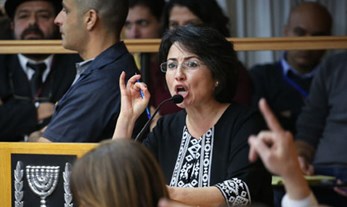
Heart vs. Head: The Case of Hanin Zoabi
Written By: Prof. Mordechai Kremnitzer, Admiral (Res.) Amichay (Ami) Ayalon
Prof. Mordechai Kremnitzer and Admiral Ami Ayalon argue that while the heart has difficulty defending MK Hanin Zoabi's freedom of expression, the head demands that we object to the decision to remove her from parliamentary activity for six months.

A Social Iron Dome for Jewish-Arab Relations
Written By: Prof. Yedidia Z. Stern
In an op-ed in <em>Yedioth Ahronoth</em>, Prof. Yedidia Stern warns that the Iron Dome could not protect Israel from hatred between Jewish and Arab citizens, and stresses the need for both sides to use imaginative empathy to mend the fabric of Israel's shared society.?

Why Israel Should Fight with One Hand Tied Behind Its Back
Written By: Yohanan Plesner
In an op-ed in <em>The Jerusalem Post</em>, IDI President Yohanan Plesner stresses that Israel's adherence to international law is not a source of weakness, but rather one of its greatest strengths.

On Operation Protective Edge, Justice, Law, and Victory
Written By: Admiral (Res.) Amichay (Ami) Ayalon
Admiral Ami Ayalon asserts that the winner of today's wars is the side whose story is perceived as just, and argues that without a diplomatic track, Israel cannot win the war, even if the war is justified and Israel adheres to international law in the face of terrorists who violate it.

A Red Alert for Israeli Democracy
Written By: Yohanan Plesner
In the midst of Operation Protective Edge, IDI President Yohanan Plesner warns of the dangers of racism, incitement, and stifling of free speech and asserts that it is essential to internalize a substantive democratic culture.

Education for Democracy as a Remedy for Violence
Written By: Dr. Amir Fuchs
Attorney Amir Fuchs asserts that educating Israeli students regarding democracy and civics from a young age and throughout their education is the best way to prevent hatred, violence, and racism.

The Role of a Legal Advisor during Times of Combat
Written By: Adv. Eli Bahar
IDI Researcher Attorney Eli Bahar discusses the central role that members of Israel's system of legal counsel play in formulating the rules of what is permissible during warfare in real time, during the fighting, in order to ensure that Israel's citizens will not be ashamed of themselves after the fighting ceases.

Operation Protective Edge and International Law
Written By: Yohanan Plesner , Prof. Mordechai Kremnitzer, Prof. Amichai Cohen, Adv. Eli Bahar
As Operation Protective Edge enters its second week, IDI experts outline the legal basic concepts involved in asymmetrical warfare and the boundaries of permissible action according to standard interpretations of existing international law.
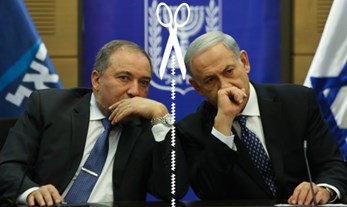
The Yisrael Beiteinu–Likud Split: Background and Consequences
Written By: Dr. Assaf Shapira
Following the announcement of the dissolution of the partnership between Yisrael Beiteinu and the Likud, IDI researcher Assaf Shapira explores the implications of Knesset faction splits.
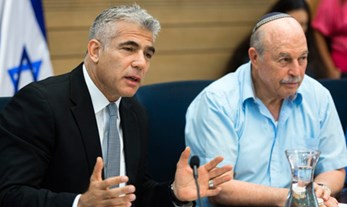
Zero Tax, Zero Logic
Written By: Dr. Amir Fuchs
Attorney Amir Fuchs argues that the proposed legislation that would exempt first-time home-buyers from value added tax (VAT) violates the principle of equality for people who do not serve the State of Israel.

